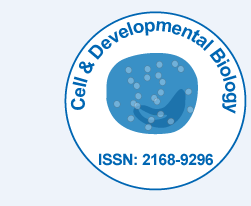
Cell & Developmental Biology
Open Access
ISSN: 2168-9296

ISSN: 2168-9296
Commentary: Cell & Developmental Biology
Research Article: Cell & Developmental Biology
Research Article: Cell & Developmental Biology
Review Article: Cell & Developmental Biology
Editorial: Cell & Developmental Biology
Posters & Accepted Abstracts: Journal of Cell Science & Therapy
Posters: Journal of Cell Science & Therapy
Accepted Abstracts: Advancements in Genetic Engineering